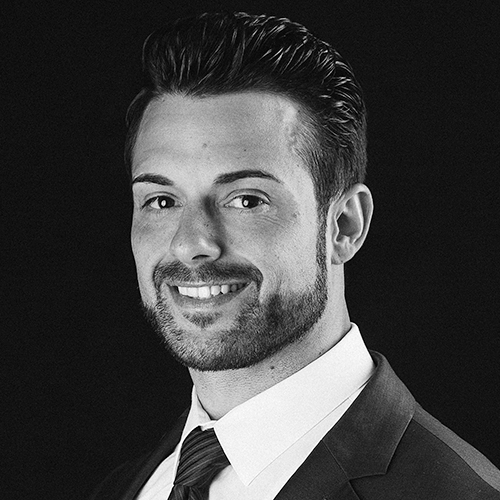“Come back with your shield—or on it.” That isn’t the typical battle cry of an insurance firm. In reality, most insurance companies don’t have battle cries. Perhaps that’s why so few have lasted as long as Starkweather & Shepley, a Rhode Island-based brokerage company that has survived and thrived since 1879.
Andrew Fotopulos, an insurance industry veteran, serves as president of Starkweather’s Massachusetts division. Having recently joined the parent company’s board of directors in 2015, Fotopulos’s interests lie in bringing one of the country’s oldest brokerages into the twenty-first century, while preserving its nineteenth-century roots.
When the company’s founders left the business in 1935, they set it up as a trust agreement. This way, instead of stockholders, the employees run the company, a unique business decision in an industry where mergers and acquisitions are the norm. Remaining a private brokerage means the focus remains on Starkweather’s employees and clients, not the return, Fotopulos says. When the focus shifts to the return on investment, companies respond with layoffs, fewer employee benefits, and suffering client relationships. Starkweather, meanwhile, spends seventy-three cents of every dollar on its employees. A combination of profit sharing, bonuses, and a no-nepotism policy enables Starkweather’s fourteen offices and 230 employees to have control and attract new talent.
From Stonemason to Starkweather
In a recent meeting, Andrew Fotopulos brought in a photo taken in his native Greenfield, Massachusetts. It showed a sandstone observation tower at the top of Rocky Mountain overlooking the lush green Franklin County. Poet’s Seat Tower, a medieval-looking turret structure, was built in 1912 in part by Fotopulos’s great-grandfather, a stonemason who emigrated from Greece.
“I have this living landmark that I can see that can remind me of where I came from—of that dedication,” Fotopulos says.
He keeps the photo in his office to remind himself of what hard work looks like.
“Synergy is a big word in this agency,” Fotopulos says. “It’s all about putting our heads together, rolling up your sleeves, being honest with each other, and not being afraid to express your opinion. We have that culture here.”
With offices in Rhode Island, Massachusetts, Connecticut, and Florida, Starkweather relies on open and thoughtful communication from the top down. Regularly scheduled lunches among the employees and the board of directors keep the ideas fresh and the culture transparent.
Fotopulos joined the board of directors in 2015 and was appointed a trustee in January 2017. One tenet of becoming a board member, he noted, was promising never to sell the company. This simple gentlemen’s agreement has remained strong for more than eighty years.
When he was hired in 2009, he was brought on as a guinea pig of sorts. Following twenty-two years at a family insurance agency, Fotopulos was charged with forming a practice group for the financial sector. What started as a fledgling experiment has become a revenue powerhouse with eight hundred clients. Starkweather now offers clients nineteen practice groups specializing in industries from marine to municipalities.
The practice groups are part of a greater initiative Fotopulos calls TC-squared: talent, culture, technology, and change. With stiff competition from private equity investors, Starkweather developed alternative methods of attracting clients and acquisitions when they couldn’t offer top dollar. Starkweather’s most recent acquisition, a twenty-employee group, nearly went with another agency that offered more money. Instead, the group went with Starkweather for the company culture it offered, particularly the emphasis on the employees and the clients.
When searching for talent, Fotopulos looks for the three characteristics that Warren Buffett once cited as most important in a new hire: integrity, intelligence, and energy. Fotopulos also actively searches for ways to engage his employees by bringing them to meetings and creating business opportunities, which consistently grows the talent’s intellectual capital.
Meanwhile, culture translates to integrity. If Starkweather cares for its employees, the employees in turn take care of their clients. Starkweather employees are rewarded the same for signing new clients and maintaining existing ones, a strategy few brokerages practice. When the incentive is only for new business, there would be no reason for talent to stay engaged with loyal customers.
Technology has made Starkweather available to its clients year-round, and social media enables communication and promotion that the original Starkweather & Shepley could never have dreamed of. Finally, change can be difficult for a company that’s more than a century old, but Fotopulos says they don’t shy away from it. “We’re not focused on our old-money ways,” he says.
Since he started eight years ago, organic internal growth has been a constant. In 2016, it was more than 7 percent. Sales have increased each year. The practice he manages in Boston is one of the fastest-growing divisions in the company. The trick, he says, is to lead
by example.
Fotopulos’s leadership style is about balance: doing serious work but having a laugh, setting high expectations but forgiving mistakes, and creating teachable moments while learning from those around him.
His rapid rise in the Starkweather ranks is the culmination of energy, passion, and dedication. Much of that roll-up-your-sleeves attitude comes from his father, he says. His dad was a schoolteacher who would tell him, “Come back with your shield, or on it.” Additionaly, his father is a tireless worker and excellent networker, Fotopulos says. That resonates with him.
“I don’t take failure well,” Fotopulos says. Luckily, neither does Starkweather.
The independent insurance sector is growing smaller and smaller every year. Soon, Fotopulos says, the insurance brokerage industry will simply become the Big Eight—global conglomerates that are selling, merging, and acquiring one another. But then outside that, there will be another. “We’re going to stand out,” he says. “We will not be selling this firm.”

